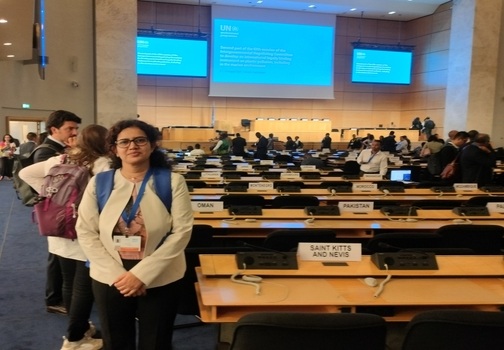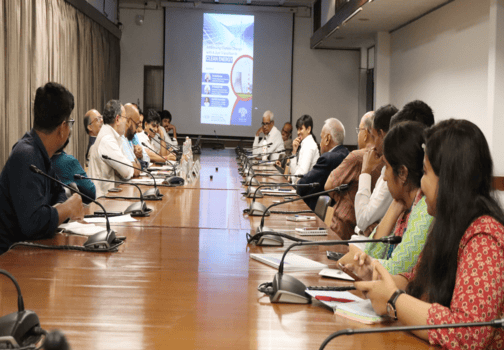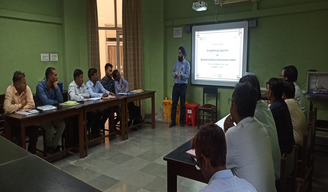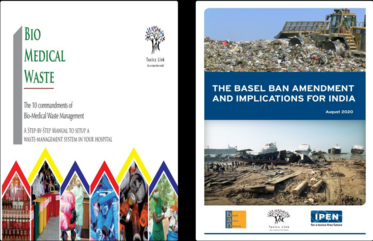GOVERNMENT OF INDIA
MINISTRY OF HOUSING AND URBAN AFFAIRS
LOK SABHA
UNSTARRED QUESTION NO: 4767
ANSWERED ON: 31.03.2022
Disposal of Solid Waste
Debasree Chaudhuri
ENVIRONMENT, FORESTS AND CLIMATE CHANGE be pleased to state:-
(a) whether the Government has taken cognizance of the high prevalence of illegal shipment and dumping of e-waste in the country, if so, the details thereof;
(b) whether the Government maintains data on illegal shipment and dumping of e-waste in the country, if so, the quantum thereof, State-wise and year-wise during last three years and if not, the reasons therefor; and
(c) the details of steps the Government is undertaking to combat the issue of illegal dumping of e-waste in the country?
ANSWER
MINISTER OF STATE IN THE MINISTRY OF ENVIRONMENT, FOREST AND CLIMATE CHANGE
(SHRI ASHWINI KUMAR CHOUBEY)
(a) to (c): The import and export of hazardous and other wastes is regulated under the Hazardous and Other Wastes (Management and Transboundary Movement) Rules, 2016 notified by the Ministry. Government had banned import of e-waste in the country by listing e-waste in the Schedule VI (Basel No. A1180) of the said rules.
As per the information provided by the Central Board of Indirect Taxes & Customs (CBIC), Department of Revenue, Ministry of Finance, there were a total 29 cases of illegal import of e-waste detected across the country in the last 3 years including current years. The details is at Annexure-I. CBIC, further informed that all field formations and Directorate of Revenue Intelligence (DRI) under CBIC keep constant vigil to check illegal import of e-waste into India and take action in accordance with law whenever such contraventions are noticed.
The management of e-waste in the Country is regulated under the E-Waste (Management) Rules, 2016. Under the said Rules, the responsibility of disposal of e-waste in a scientific and environmentally sound manner has been assigned to Producers of notified Electrical & Electronic Equipment (EEE) as listed in Schedule – I of the said rules under the principle of Extended Producer Responsibility (EPR). Under EPR regime producers of EEE, have given annual e-waste collection and recycling targets based on the generation from the previously sold EEE or based on sales of EEE as the case may be.
The compliance monitoring is done through Action Plan developed by Central Pollution Control Board (CPCB) for enforcement of E-Waste (Management) Rules, 2016 in the Country. The major action points include identification of Non-EPR Authorization producers, State/UT wise inventorization of e-waste, verification of system provided by producers for e-waste channelization, verification of facilities of dismantlers/ recyclers, drives for checking informal activities, formulation of State Level Committee for monitoring implementation of rules and mass awareness activities etc. Under the action plan, monitoring and compliance of producers are ensured through Sate Pollution Control Boards and Pollution Control Committees. Further, under the existing rules, provisions are in place for action against the companies who are violating the said rules.






